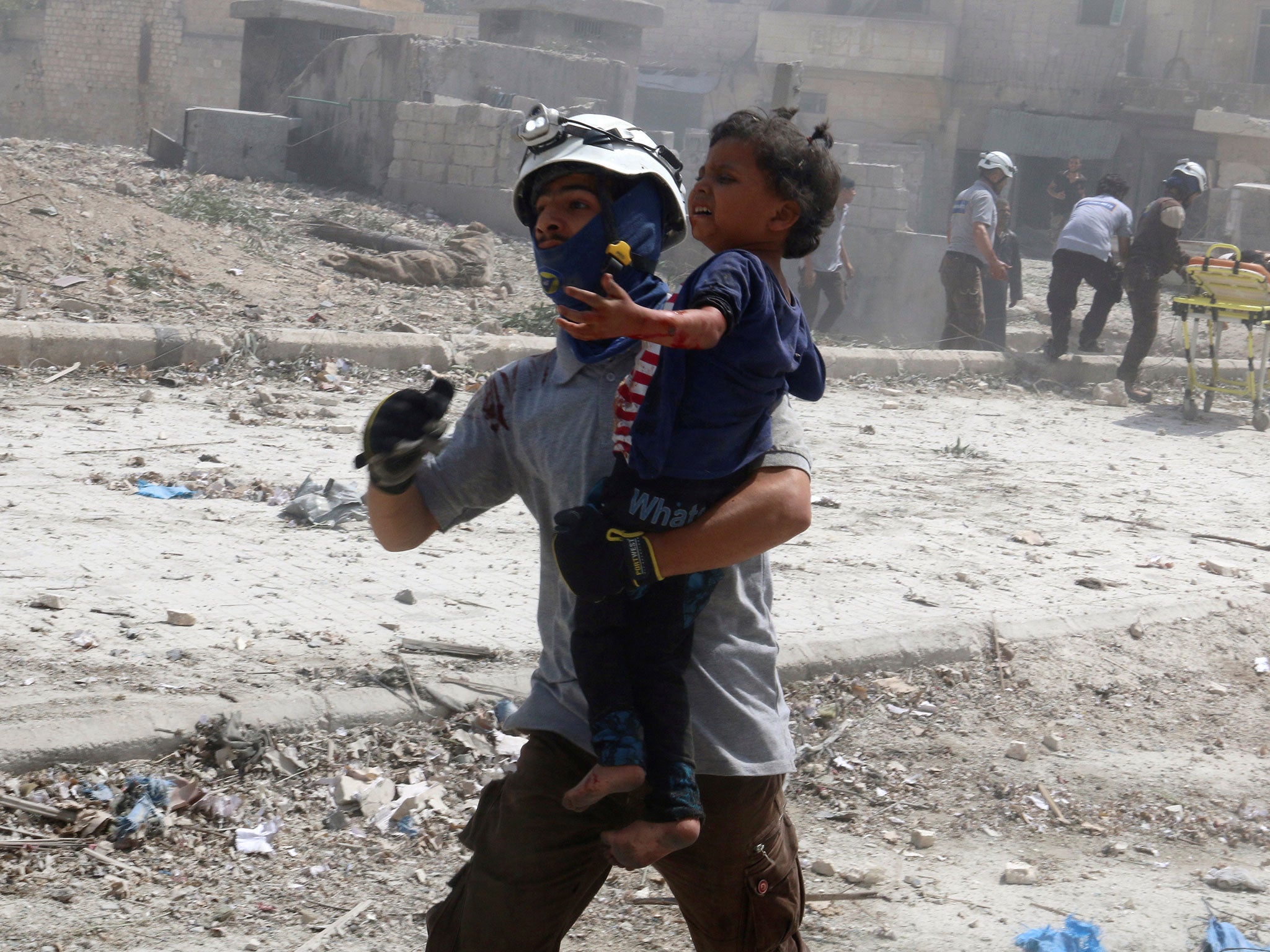Syria war: ceasefire comes into force
Cessation of hostilities agreement brokered by US and Russia hailed as 'best chance of real ceasefire since the beginning of the war'

A ceasefire agreement has come into effect in Syria, after more than 100 people were reported to have died in airstrikes over the weekend.
The deal, which was brokered by the US and Russia, officially came into effect at sunset on Monday, though doubts remain over whether opposition fighters in Syria will abide by it.
If the cessation of hostilities lasts for a week, the US and Russia will carry out air strikes against Isis and other jihadist groups.
The deal was finalised in Geneva on Friday after months of negotiations between the US and Russia, and has reportedly been welcomed by Syrian president Bashar al-Assad.
Previous ceasefire agreements have prompted similarly heavy bombardments by the Syrian government prior to beginning, but have all ultimately failed.
The negotiations are the second attempt Washington and Moscow have made to broker a national ceasefire in the country, in a bid to bring an end to the violence.
It is hoped the truce will allow more than 30 aid trucks to deliver humanitarian aid to the besieged city of Aleppo.
Rebel groups including the Free Syrian Army and the Islamist group Aharar al-Sham have both accepted the deal.
The Syrian government will still be able to attack Isis and other jihadi groups, and is officially supporting the ceasefire.
Nonetheless, President Assad said he was still “determined to recover every area from terrorists, and to rebuild”.
If the ceasefire holds for seven days, then under the terms of the deal, the US and Russia will set up a joint command centre to hit jihadist groups including Isis and Jabhat Fateh al-Sham (formerly known as the Nusra Front).
Former Foreign Secretary David Miliband told the BBC’s Radio 4 Today programme the plans offered the best chance of a real ceasefire since the civil war began five years ago.
He said: “The indications are certainly that there is a better short-term chance of a decent lull in the fighting than has ever happened before. The degree of Russian engagement seems to be of a much greater order than of any of the previous ceasefire attempts.”
Syrian children hold Pokemon Go pictures in the hope people will find them and save them
Show all 13He added: “If there are enough short-term interests that join the Americans and the Russians, then those of us on the humanitarian side have got a chance to try and make a difference for 17 million benighted people within the Syrian territory.”
Subscribe to Independent Premium to bookmark this article
Want to bookmark your favourite articles and stories to read or reference later? Start your Independent Premium subscription today.

Join our commenting forum
Join thought-provoking conversations, follow other Independent readers and see their replies